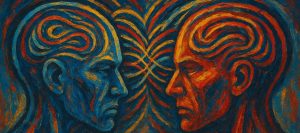In ancient Greek tragedies, the Hero always had a hamartia; a fatal, tragic flaw which ultimately led to their downfall.
This was most memorably depicted in the story of Achilles, the hero of the Trojan War and protagonist of Homer’s The Iliad who was portrayed by Brad Pitt in the 2005 movie Troy.
According to legend, Achilles was invulnerable because his mother Thetis had dipped him in the River Styx as an infant. But because she held him by the heel, there was one part of his body untouched by the mythical waters, and a single weakness for his opponents to exploit.
Today, the story is so well-known that the Achilles tendon at the back of the heel was named after the Greek hero, and the phrase “Achilles’ heel” has become synonymous with a single point of weakness that leads to one’s downfall.
This flaw doesn’t have to be physical: in other Greek legends, the hamartia could be greed, lust for power, or a mentality that was too logical and disrespectful to the gods.
Shakespeare also depicted similarly tragic heroes with a key point of weakness in plays such as Macbeth, King Lear, or Titus Andronicus. His tragic heroes were largely flawed through the decisions they made, often ill-conceived and lacking forethought.
In the 19th century, authors such as Thomas Hardy doomed their tragic heroes by imbuing them with a “paralysis of the will,” often resulting in lonely demises.
For us, it can be helpful to attempt to assess our own potential flaws and seek to reframe them positively. What, potentially, could distract and divert us from our goals? Apathy, procrastination? Eating or drinking habits?
Self-flaw assessment
One way of assessing our potential weaknesses is to write down a journal entry with three columns.
NEW! Put the principles from this article into practice with the free courage-boosting MaArtial app on the App Store for iOs and Play Store for Android.
In the first column, outline the ideal person that you’d like to become, or see your future self as. What are their positive qualities? What brings them success? What characteristics or traits might others admire in them?
In the second column, create the person that you would detest becoming. What are their negative characteristics? How do others see them? Why have they failed?
Finally, in the third column, note what steps you could take to become more like the version of yourself in the first column, and less like the version of yourself in the second column.
What are the realistic parts of yourself that you could change or develop in order to become the best version of yourself? What are the potential flaws that you need to be aware of to make that happen?
This brief exercise can often be enlightening. We tend to focus on the ideal person that we’d like to be and not the person we want to avoid becoming, but recognizing potential flaws before they manifest can help us get there.
[text-block-start]
A tragic flaw can often halt our attempts to become the best versions of ourselves, and identifying a potential weakness before it hinders us can be greatly beneficial.
By reframing the concept of the tragic hero to our advantage, we are taking a path to avoid self-sabotage on our personal journey.
Don’t think you don’t have an Achilles’ heel: find out what it is before it leads to tragedy.
[text-block-end title=”MaArtial comment”]
Lead photo: Brad Pitt as Achilles in Troy (2005) courtesy Warner Bros. Pictures












